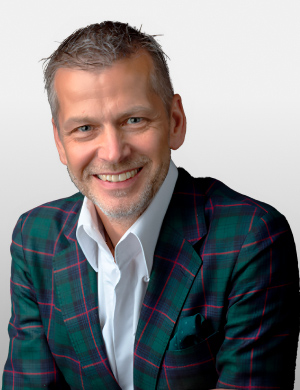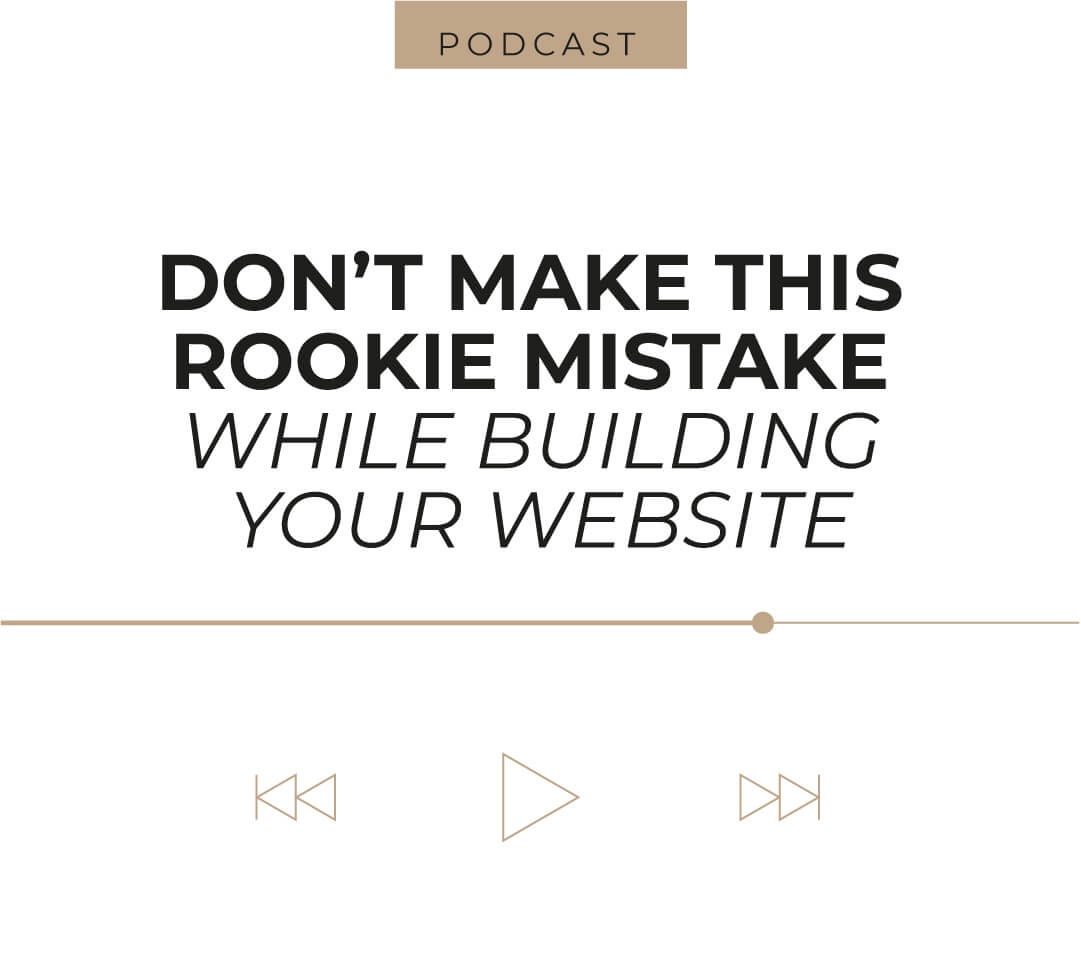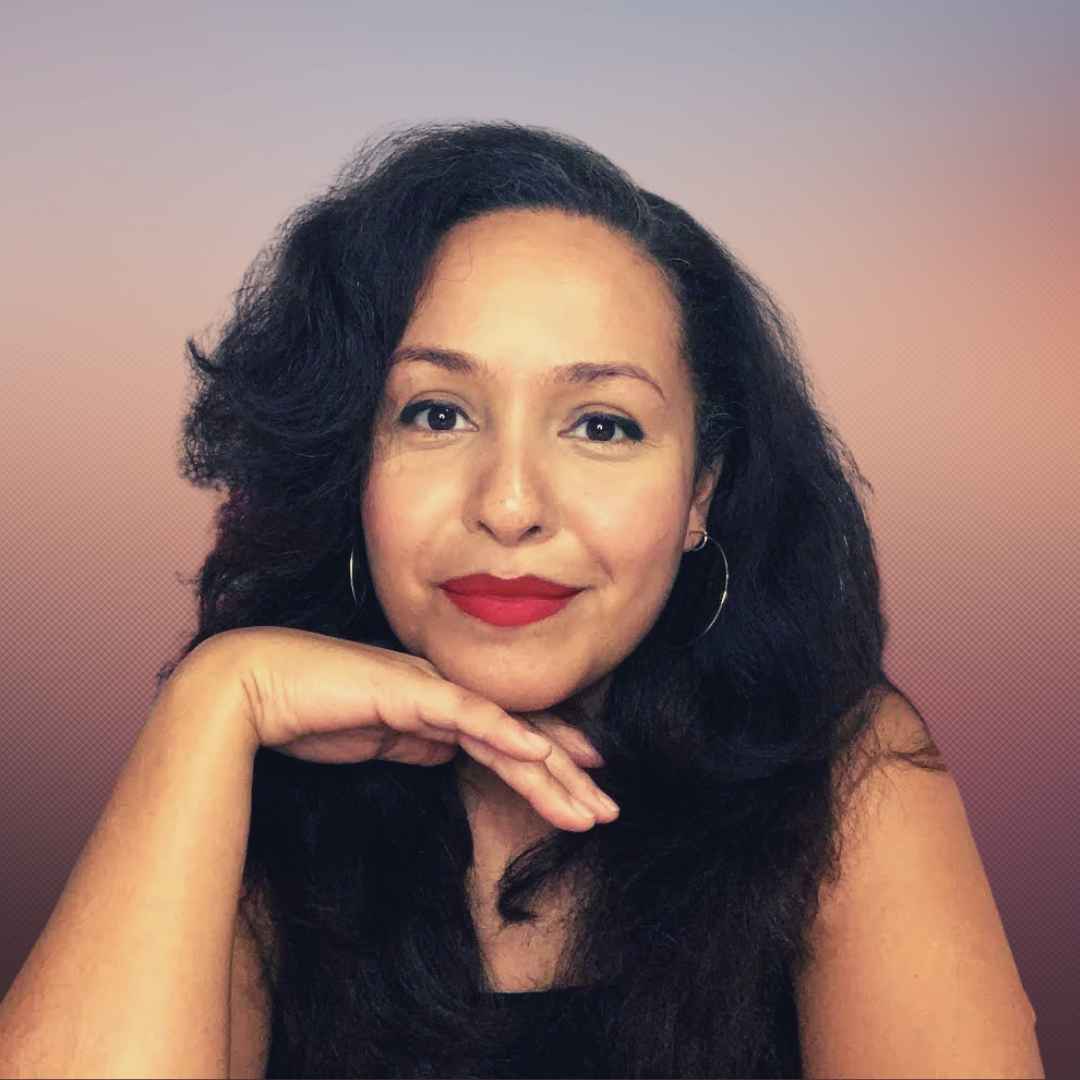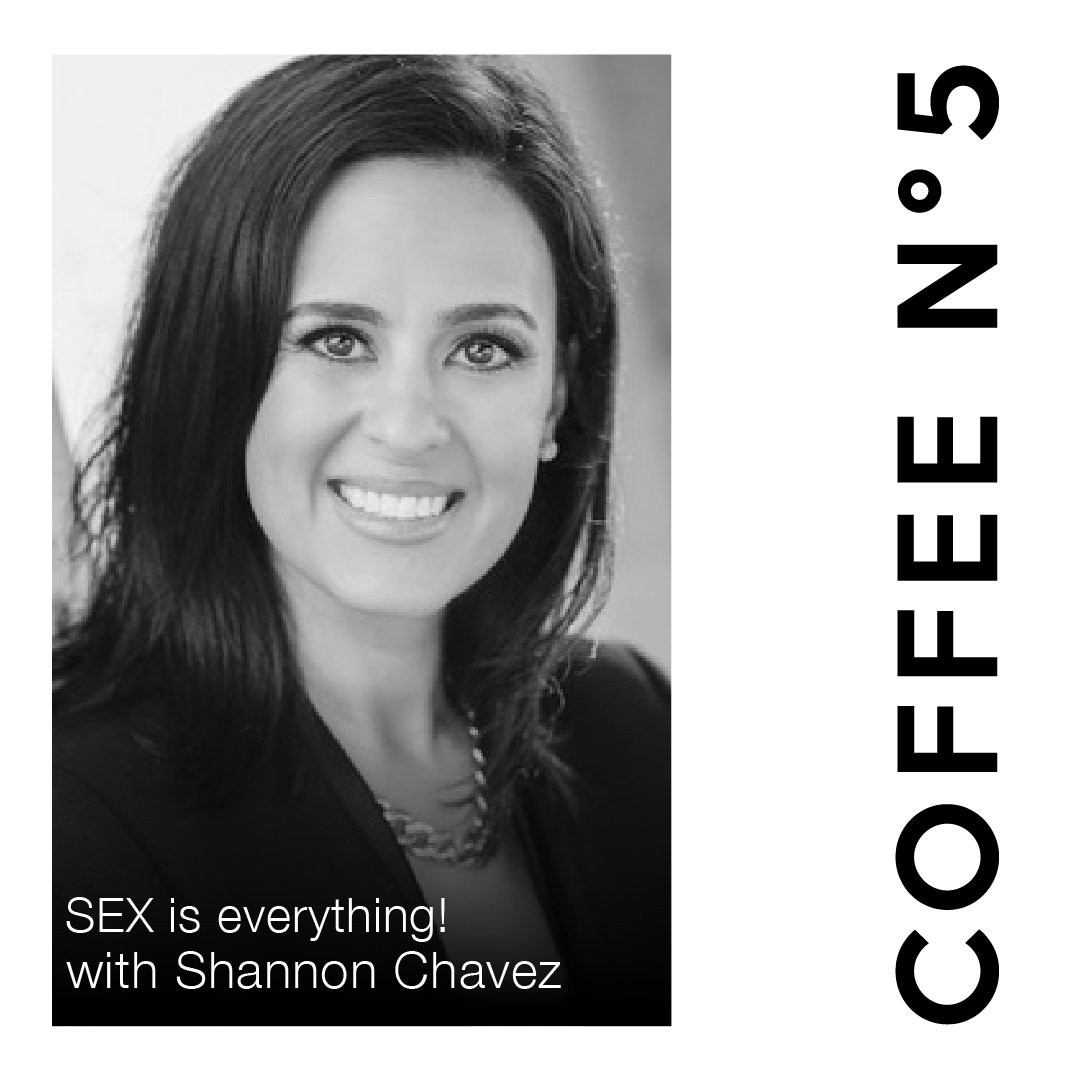Lara Schmoisman (00:11)
Hello, welcome back to coffee number five. And we have a very interesting day today. We are in California right now and it’s sunny. It’s actually really warm today and we’re getting in this new season and everything is changing. But lately I also feeling that everything changes so fast in this marketing world that we live. Everything changes and it’s like, we don’t even have seasons anymore.
Everything and all the technology evolves so fast that I found out that one of the best ways to learn is just to mingle and to meet very interesting people. Podcast is a great way, but also going to in real life event, which I think we missed for a long time. But there are a lot of amazing people out there that they make these things possible.
And today we’re going to be talking about possible because we have Christian Muech. Did I say that right? Or Mueche? How do you pronounce it Christian? Welcome.
Christian Muche (01:14)
Originally it would be, you know, it would sound like mocha, but I’m aware of this that in English it’s a bit difficult to pronounce it. Yeah, that’s fine.
Lara Schmoisman (01:22)
Well, welcome. Thank you so much. Christian today is in New Zealand, so how’s the weather there?
Christian Muche (01:29)
So we are exactly on the opposite side of the world, which means we are heading into winter right now. So it’s mid fall and looking out this morning my time and I’m living in your future by the way, right? It’s already Thursday my time. Exactly. I’m looking out and I see already some snow covering the top of the mountains on the other side of the bay. it’s definitely winter is around the corner.
Lara Schmoisman (01:34)
huh.
Yes, see you in my tomorrow.
Oh, that’s beautiful.
Well, as you can see, the world changes all the time, depends where we are. But tell me a little bit about possible. What’s possible?
Christian Muche (01:59)
Yeah. So possible, I would say, is a great event launched two years ago in 23, based in Miami at the wonderful Fontainebleau Resort. And it’s happening every April as a big event, bringing thousands of people from the marketing world, from the technology world, but also from the culture world together. And we decided to launch this and to be in Miami because of this.
beautiful environment to be able to do possible indoor and outdoor. So you’re not stuck in a windowless convention center like many other events around the world. So you really enjoy the sun, the beautiful weather out there, indoor, outdoor. And it’s a combination of a big exposition and conference with up to eight, nine different stages, et cetera. So.
Lara Schmoisman (02:35)
Mm-hmm.
Christian Muche (02:57)
We are serving the marketing world. Everybody who belongs to marketing, whether it’s the brands and the marketeers, the creator economy, the agencies, the consultancies, the independent advisors, and of course the tech companies, they’re all coming together. It’s like the Davos of the marketing world, right? We bring the decision makers together.
Lara Schmoisman (03:16)
And it’s not dangerous that everyone is competing for the same businesses they are.
Christian Muche (03:20)
It makes it very interesting, of course. And this is exactly the reality. mean, instead of doing your meetings one after each other, especially as a brand, as a marketeer, and talk to potentially partners, potential partners who might be able to help you in your daily business to stay relevant as a brand in this, as you said, ever evolving and changing consumer world out there. It makes your life maybe a bit easier to do a lot of meetings at the same time within three days.
Lara Schmoisman (03:47)
I
am a big believer of collaboration and getting to know your partners. I just was at another big conference and it was great that I can connect with my partners in crime because as a marketing agency, I’m not alone, I cannot do the job and it’s great to see, to get to see the faces and who you’re working with. I’m not going to give the names of platforms, but
Christian Muche (03:53)
Yeah.
Lara Schmoisman (04:12)
We partnered with several of them and it’s great to say, and I have to tell you, I stopped working with several other platforms because I didn’t feel like they have that relationship. And in this world, it’s all about relationships, the same even with marketing companies. I feel like we need to collaborate. But with that said, I seen also a lot of competition in between marketing companies and
How do you address that and this not becoming a competitive space and more collaboration space?
Christian Muche (04:47)
Yeah, yeah. I think you’re right. First of all, I see it in a very positive way. Competition push ourselves in each other to do even better. And we want to provide opportunities and the possibility of choice for our clients and customers. So to be there and you can decide whether you meet with A or B or C, I think that that provides a lot of benefits and then you’re able to compare. On the other hand,
A lot of these issues we are facing currently in the marketing world are only able to be solved in partnerships across competition and beyond being competitive. So that’s the reason why I also, a strong believer as yourself in real-time event, also coming out of COVID, when I started with the concept and the vision of possible, we were still in COVID mode.
And I believe that yes, world is completely changing as we see it right now. That’s our first meeting, Lara. I’m more than happy to be able to connect with you. It’s not in real. It’s via the podcast here, which is great. But, you know, it would be more even more fantastic, you know, if you can make it over to Miami in two and a half weeks time. And then we could spend, you know, face to face and having a real coffee together. That would change.
Lara Schmoisman (06:01)
Mm-hmm.
That would be great.
Christian Muche (06:09)
That would change the we don’t need to do this. Of course, in today’s world, we don’t wouldn’t need to do this week by week, but at least once, you know, building such a new relationship, I think that’s pretty important. And this is why I’m a strong believer that real time events have a strong and very positive future despite all the technology we’re using all day long. Yes, we are all more selective. We don’t need to go to in-person meetings every week, like in earlier days, going into the office five days a week.
That definitely changed. And there are a lot of benefits. We all know that. But it still makes a difference to sit in the same room face to face and having a real coffee with each other. If it just once, therefore I think that possible will be the center point and the daibs of the marketing world also in the future to bring people together.
Lara Schmoisman (06:49)
Absolutely.
Let me ask you a question because it’s so, I mean, you have very interesting speakers you need. And of course, as any event, you start planning these events a lot earlier before in time. And so how do you gauge what is going to be right at the point? How do you decide this is what’s coming up? This is the trend. This is what’s going to happen.
Right now, as we speak in the world, we are dealing with lot of issues that a lot of our customers and the platform customers are dealing with without the tariffs. So this is obviously is going to be affecting. So how do you make your programming current?
Christian Muche (07:38)
Yeah. Yeah.
Yeah. It sounds like an easy question. The answer is, you have to act in various ways. First and foremost, I spent now my whole life in, as long as I’m in this business, traveling around and sitting down with people and listening to them. Doesn’t matter whether it’s an independent advisor, whether it’s in economics, whether it’s one of my partners and clients, you need to learn about their real issues and they’re only shared with you in a one-to-one.
not in a bigger group, to become aware of. Then, of course, you have to make the right decisions in terms of together with your team to be able to perfectly curate this big pot of information you receive over the year. We are the collectors and we are the distributors of that content. So in other words, we have to be very creative and not just being copycats.
It’s not just that you provide a stage and bring speakers on it. You really have to sit down with them before they’re going on to stage and discuss what is the best way to talk to each other. What is the best way, what is the best combination of speakers? Is it a single speech? Is it kind of panel discussion? Is it a one-to-one? Is it an interview? Is it an intimate conversation with Chatham House rules where really everybody can speak about real issues?
That’s what we do here. And that’s, think, one of our secrets that we do it obviously right to offer different formats of speaking engagements and connecting people with each other. And there might be one to one meetings that might be on a big stage. It depends on the topic. It depends on the urgency. It depends on the sensibility of this topic. You cannot say one solution fits all. This is in today’s world no longer the case. The diversity.
is also happening in terms of having more diverse expectations from your audience and your attendees and your partners than ever before. Ask 10 partners and you get 15 to 20 different expectations. It feels like this. And this is our job. And only if you dig into details, if you’re passionate about what you do, if you don’t see it just as a business, you want to create a relationship with your partners and your audience and
Lara Schmoisman (09:44)
Salute.
Christian Muche (09:59)
you know, who you’re talking to. And then you get a kind of real sense what the real issue is for everybody, for every single one. And only doing this, you will be able to make a difference and face the issues and bring it up and be able to have a more or less honest conversation about that.
Lara Schmoisman (10:18)
When we talked before, you mentioned that there were three or four groups that can benefit from going to this conference. And one of them were marketers, platforms, do consumer benefits or entrepreneurs could benefit from going?
Christian Muche (10:34)
Absolutely.
have a massive, we have a message, we call it innovation village with startups means with the hidden stars, you know, maybe somebody haven’t heard about this yet. So yes, we have entrepreneurs, experienced entrepreneurs like the Mark Cubans and the Alex Orhanians and Martha Stewart’s and tech entrepreneurs who are sharing their experiences. We offer mentorships for younger audiences, you know, who are willing to step into this world, into the business world.
And we support startups, young entrepreneurs who just started their business maybe one, two, three years ago and want to be in the same room with the big elephants, with the big players.
Lara Schmoisman (11:14)
Because going to these events is definitely an investment for a company. And a lot of young companies mostly, I’ve seen this a lot. And you need to know when you’re ready to go to these events. You need to be able to be able to not only absorb what you’re learning there, but you are in a place that you can implement too. I’ve seen a lot of entrepreneurs go into conferences.
Christian Muche (11:27)
Hmm.
Lara Schmoisman (11:40)
early on and I say it wasn’t worth it for me. And I cannot blame the conference many times. Sometimes the conference is not great, but many times is that you as a business owner or as an entrepreneur, you don’t have the knowledge to be able to observe the content at the level that is expected in the conference. So would you say that possible? It’s a
Christian Muche (11:48)
Yeah, yeah.
Lara Schmoisman (12:07)
a good fit for someone who has zero experience and they are starting to think about launching a business or is someone who already is in business and have certain knowledge.
Christian Muche (12:18)
Yeah.
I would say, I believe it would be a good choice to go. Of course, it depends on your individual situation, whether you join it as an attendee and just want to get a first impression and want to become part of these conversations, or if you come and show up as a company, you know, with your brand and be able to provide your and present your solutions and your product and your vision and what you have in mind.
So are you somebody who is just touching base with others and want to be educated and learn and what wants to create connections? Or are you already able to present something to this audience, right? And offer your solutions to the audience. That’s the first major question you should ask yourself. We provide both options here. And then whether you have a big budget or not in terms of tickets, in terms of
activation opportunities, we offer the whole range of budgets. You can come in with a couple of hundred bucks for our younger audience. If you’re a marketeer, we provide free tickets. If you commit to a handful of meetings based on our meeting program. And of course, if you’re company who wants to do some activation, it could be a startup budget and it could be a big budget. Depends on your needs and how ready you feel to be bold and
you know, to go out in a very bold way and present yourself and your brand to the audience. This is what I mean. You know, in today’s world, the expectations are far more diverse and requirements. And I believe possible because we launched it just two years ago, we could consider this changing world. We are not just copy pasting an existing conference. And I strongly also believe that other events who doing just the same like pre-COVID
and not considering these changes are in trouble in the future because that’s not what we are all looking for anymore. We are far more selective, not just a C-suite, but we all are far more selective. Where do we invest our time? And of course our money, but more important than money is where we’re investing our time. And I would say we all go to less events around the year. We try to travel a bit less for many different reasons.
So you have to be one of these key players, unique players in the room, to attract a relevant audience. And I believe that coming out of this COVID experience and all the changes in our today’s world, which are happening anyway, that this was the right time to do it. I’ve heard many people telling me, we are bored about and tired about the existing event structure. We always see the same kind of content, the same faces.
We need some fresh, fresh connections.
Lara Schmoisman (15:04)
Let me ask you a question, Christian, because you are in New Zealand, but you are having this event in Miami. How important do you think that is the geolocation by the time you create an event? like, do you think that it’s more US focused or doing it in the US or in Miami means that more people can join?
Christian Muche (15:12)
Yeah.
Lara Schmoisman (15:28)
Or why was the decision of doing it in the US? And are you planning to have soup? Because I’ve seen a lot of other events that they are doing, one in Europe, one in the US, one in Asia. So why you think you started with the US and do you have any plans to expand?
Christian Muche (15:38)
Mm-hmm. Yeah.
Yeah.
Maybe one step back before I come back to possible and why I did it in the US. 18 years ago, I’ve launched another big event at this time, which became the biggest platform and trade show in the marketing world, which was called DMAXCO in Europe, in Germany. I brought in 60,000 people over two days from all over the world with more than 1200 exhibitors. It was massive. That was the currency at this stage, know, quantity.
In today’s time only quality counts because as I said before we are far more selective We’re looking for quality in terms of connections content and everything Talking to my network in the US a couple of years ago. They all told me we don’t have such an event We need something fresh and new in the US, which is the biggest market by the way, right? it’s the biggest marketing advertising media market in the world and I Felt that you know finding the right partners to launch such a net year
the US market is the right one, because first, it didn’t exist. We’re filling a gap here. Second, to get the right support, know, US is very, you know, it provides a lot of positive and friendly environments for entrepreneurs. And Miami is a great spot to do this. So targeting the biggest market in the world was one of the key reasons. And there was a need. Thinking about the future.
Lara Schmoisman (16:59)
Mm-hmm.
Christian Muche (17:09)
I would like to make possible even more international to bring in more international audience to possible in Miami. But yes, I’m also thinking about internationalization. could mean we haven’t decided yet. It could mean to maybe go into other regions of the world. But again, I’m not just copying something which others did before. And I’ve seen many events doing mistakes going to other regions because other regions means different cultures, different expectations again. So you have to understand first
Lara Schmoisman (17:34)
Yeah. Let me tell you.
Christian Muche (17:37)
before you do such a you have to understand first where you want to go and what the requirements are. And there might be different, for sure.
Lara Schmoisman (17:44)
You’re
so right about that. When I started this podcast, said, I can do this in Spanish too, more for other countries in Latin America. And it was a terrible failure. I could not do it because I realized that I only work in the US market and in Europe. I don’t work in Latin America. So it doesn’t matter that I speak the language. I realized that marketing was used so differently that I wasn’t able to give
Christian Muche (17:51)
Yeah. Yeah. Yeah.
Yeah.
Lara Schmoisman (18:12)
the information needed for those markets.
Christian Muche (18:15)
Yeah. I mean, it’s not just a culture thing, how to communicate with your local audience. It’s also that you always have local players who are not acting on a global scale. So you have to get familiar with what are the local players in Europe or in Asia or in South America, et cetera. And then it comes down to there are other events. There might be another event competition there, all these things. But then talking to people, you need to understand what they’re looking for. You know, quite often, if you come from the US,
Lara Schmoisman (18:24)
Mm-hmm.
Christian Muche (18:42)
to be honest, you go out into the world and tell them you know how to do business. I’ve seen it several times and this is not the way the world likes it. You have to adapt with the local needs and with the local people and players. again, for me it’s a time to look out, to connect with those potential partners and audiences and to understand them before making a decision. It could be tomorrow, it could be in another year, I don’t know yet.
Lara Schmoisman (19:09)
So basically what you’re saying is that no necessarily people from other territories will benefit from coming to an EOS event in this case.
Christian Muche (19:19)
Well, no, are two different ways. First, believe that, you know, it’s
Bringing those people from other parts of the world to Miami makes absolutely sense. And that’s one of my goals, especially those who are acting on a global scale, who wants to be inspired by maybe some of the leading events from another region and then go back to their country and to their local business and might be able to adapt some of these ideas. That’s one idea. But you also ask about maybe launching possible in other parts of the world.
Lara Schmoisman (19:27)
Mm-hmm.
Mm-hmm.
Christian Muche (19:51)
to bring
possible as an event or the possible. And that was why we are referring to, you need to understand first. And I’m sure that there must be some adjustments and not just doing it in exactly the same way in other parts. there are two different components here. Bringing more international people means more audiences to Miami. That’s the obvious step and we are increasing our international share this year already.
Lara Schmoisman (20:03)
I see.
Christian Muche (20:18)
So we will be around 10 to 12%. Could be higher in the future. But that doesn’t exclude to maybe potentially move into other parts of the world, if possible.
Lara Schmoisman (20:22)
So,
So you think the platforms are going to start to expand more and you think they’re going to get the way we work maybe in the US or maybe from another country. So they’re going to start being more global and we’re all going to start using similar things or the same technologies that is going to get more globalized and that’s as it is right now.
Christian Muche (20:51)
mean, obviously, let’s talk about the obvious thing, AI. It’s used around the world, no doubt. I think the intensity and the speed how to be used is different around the world. Depends on a lot of other criteria and components. At the same time, I see that some regions are more connected to others. For example, Miami is very strong connected to the Latin market, as we all know.
Lara Schmoisman (20:55)
Mm-hmm. Yes.
Mm-hmm.
Christian Muche (21:18)
So there is a nature fit for the Latin market already. But going to the Middle East or Asia might be a complete different story. This is what I’m talking about. It’s not one solution fits all. You have to find individual ways to better understand the needs and then adjust what you’re doing. In some cases, it means more adjustments and some others it means less.
Lara Schmoisman (21:26)
Mm-hmm.
Very cool. So let’s talk about AI for a minute. How relevant you think that is still talking about AI or is something that we already all talked about?
Christian Muche (21:50)
I mean, it’s needed to say that AI is on top of many conversations. And I think we are now in a time where especially brands and marketers and everybody else needs to understand based on case studies. We don’t need another speech on stage or another conversation that it would change our world. We all know this already and we see it already. So now it comes down to who is able to share experiences, case studies, data.
Lara Schmoisman (22:11)
Mm-hmm.
Christian Muche (22:18)
knowledge already based on activities using AI in different ways. I believe that AI this year in two weeks at possible will have a strong focus on AI. I call it AI with a human touch. So brands that understand how to blend automation with empathy, they will win.
And this is a strong component in our conversations with our clients. And I see this happening on stage and at Possible this year. Of course, we are using AI across our team. We make AI visible and possible in many ways, serving our audience on site. In the run up to the show, but also if you’re on site, see a lot of our whole brand design is based on AI.
We have different helping tools being integrated in our app, but also on site with terminals, et cetera, based on AI. We are analyzing our audience based on AI, et cetera. So this is how we try to set up case studies for ourselves, but also share this with our audience. It’s all about case studies now. We don’t need to listen to another speech. Yeah, sorry.
Lara Schmoisman (23:26)
Absolutely.
I agree with that. It’s not about validation anymore. It’s about confirmation of that what you do is working. It’s about getting data. And I have, before we go, I have something that I’m very curious about your opinion, because there is a trend that it’s been going on for a long time, but I see it shifting, which is the influencers market.
Christian Muche (23:34)
No. Yeah.
Lara Schmoisman (23:54)
How do you think that right now a lot of people are living from being an influencer and how do you think that this will evolve?
Christian Muche (24:03)
I really believe that influencer marketing, let’s call it creative economy, is now really linked to the C-suite and they’re colliding. The line between executive thought leadership and content creation is blurring. also one of our initiatives is to integrate the creative economy throughout the whole event.
We have an ambassador program with selected creators, you know, producing great content on their own about possible being on site. I believe that creators don’t just need to be on the main stage and, you know, be part of the conversation. They really need to drive these conversations. Creators are speakers at Possible. Creators are collaborators. Creators are partners, are storytellers.
Look into marketing campaigns. Quite often creators are part of the executional part, but not of the conceptual part. I think that needs to be changed. It’s changing already. And we are supporting this while presenting the creator economy throughout the whole activation, not just bringing them on stage. That’s the most obvious thing. And seeing a famous creator influences on stage doing the speech. It’s really that they need to get to the beginning of
all the storytelling and also for campaigns need to be part of the conceptual part of a story and a marketing campaign. That’s how we support creators on site as well.
Lara Schmoisman (25:33)
But do you differentiate creators from influencers? Because I do.
Christian Muche (25:39)
I would see it more, my definition is what I’m observing is creators are more kind of umbrella on a higher level in terms of covering all kind of activities in the creator economy, which includes influences. Yes, sometimes it’s, know, sharing your opinion. In some other cases, really creating new content that might be different here. But I see creators more on a
on an upper level, covering various activities in that economy than in influences. But I’m more than happy to listen to your definition and also learn more from you about how you look into this, because you are the experts in this area.
Lara Schmoisman (26:20)
Yeah. Well, that gave us thinking to all of us and see how we’re going to go from here and how we’re going to be evolving in this new world that technology is changing, that we have content creators. We need to collaborate with them, but also collaborating with AI.
Christian Muche (26:36)
Absolutely. mean, again, this is just, you know, we try to execute things and and present showcases and not just talk about theoretical stuff. That’s that’s what we try to bring together.
Lara Schmoisman (26:49)
Yes, we it’s like predicting the future a little right.
Christian Muche (26:52)
Yes, a little bit, for sure.
Lara Schmoisman (26:54)
little
bit too. Well, Christian, thank you so much for being here today and for having a cup of coffee with me and I hope that we can have one in real life very soon.
Christian Muche (27:04)
I’m looking forward to this. Thank you so much, Lara.
Lara Schmoisman (27:06)
And to you guys, was great to have you here one more time and I will see you next week with more Coffee No. 5. Talk soon.
